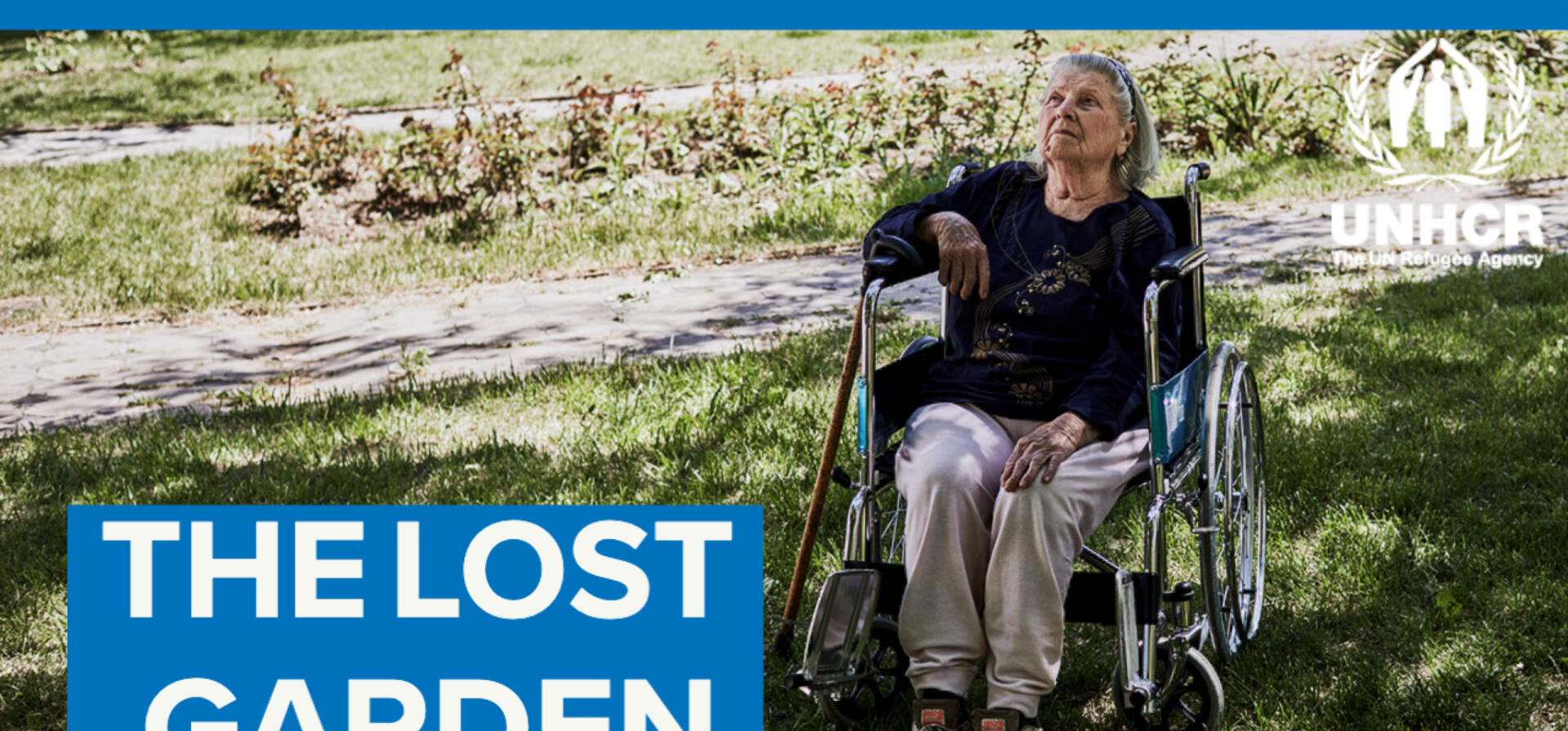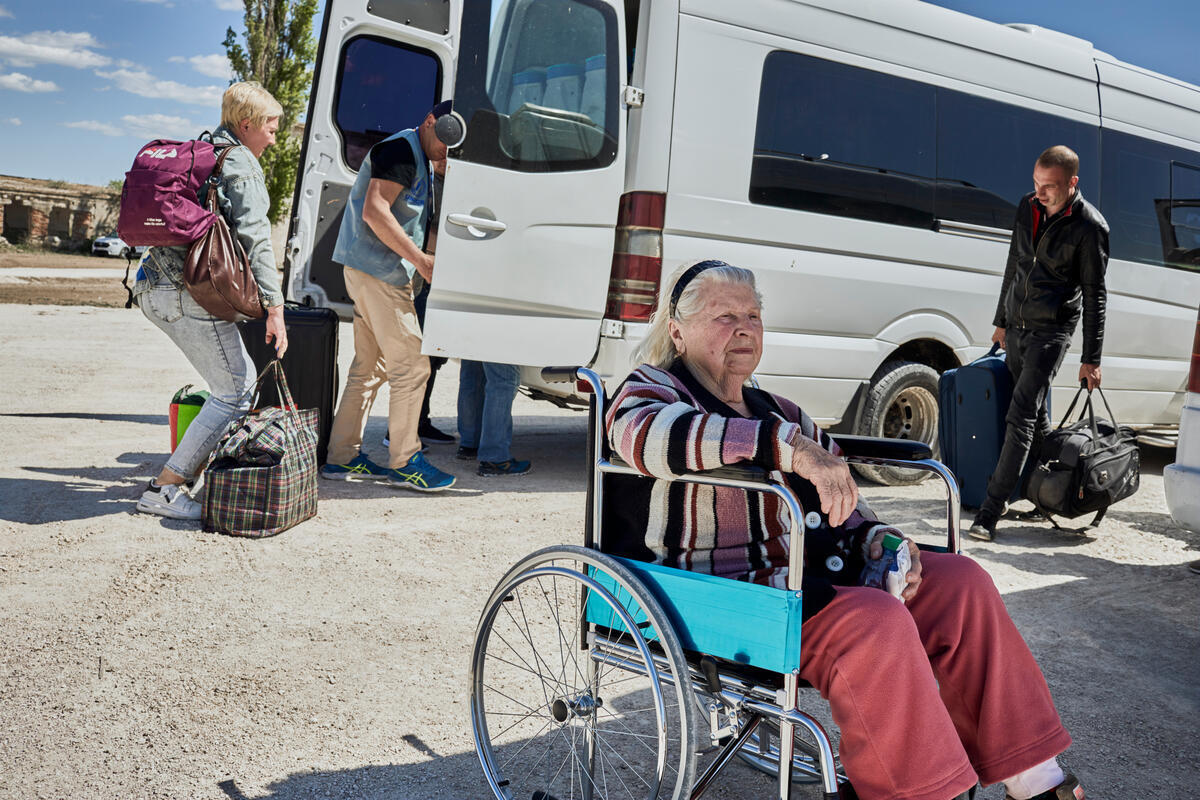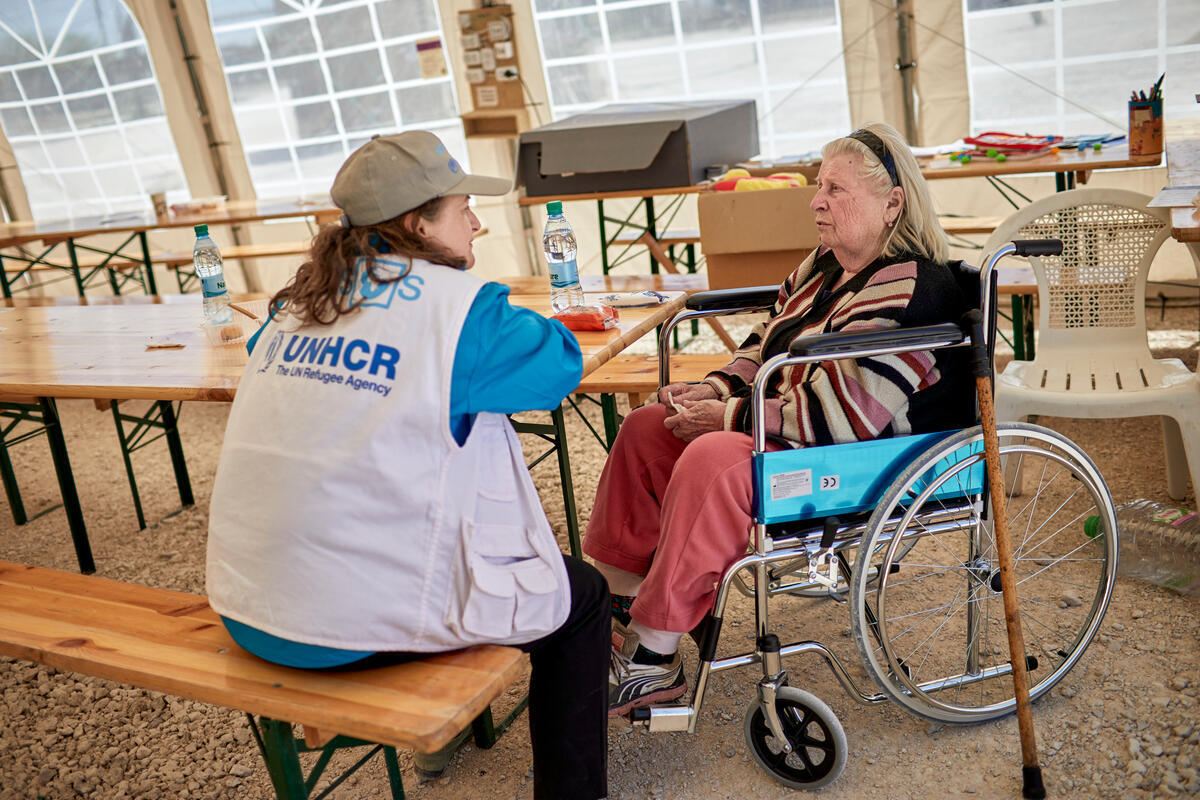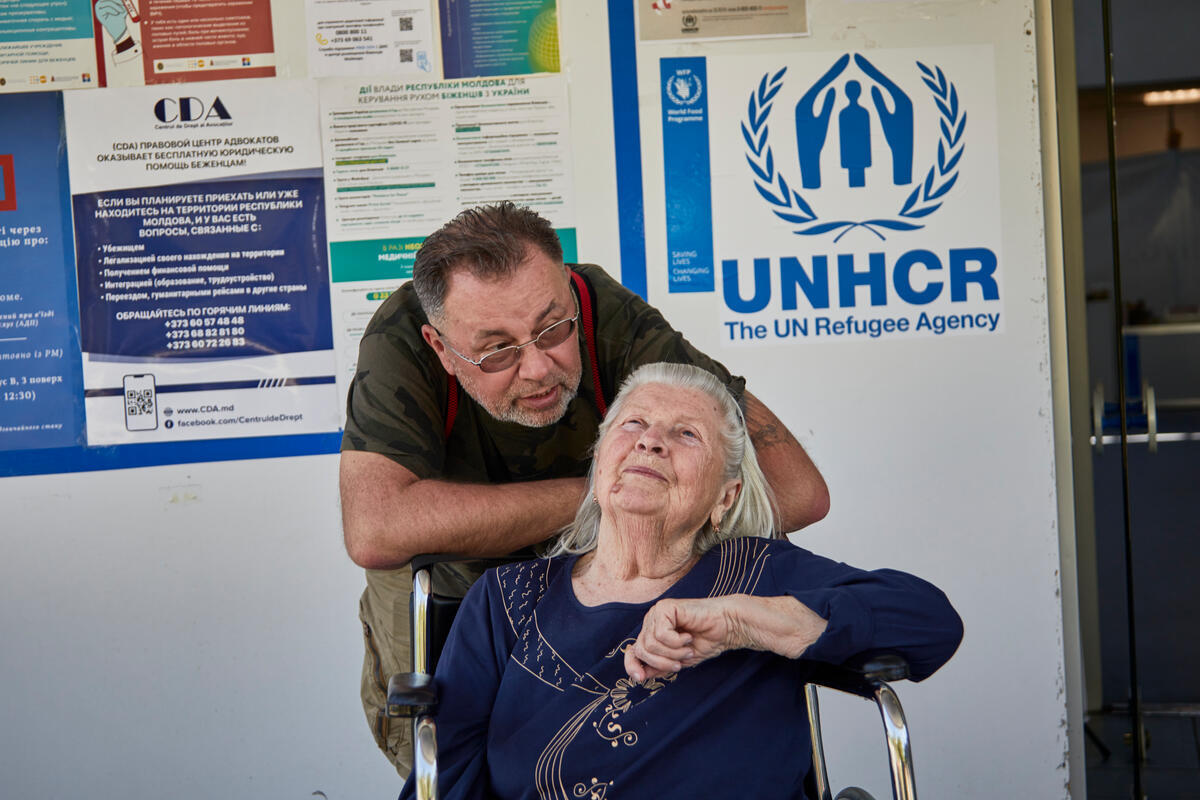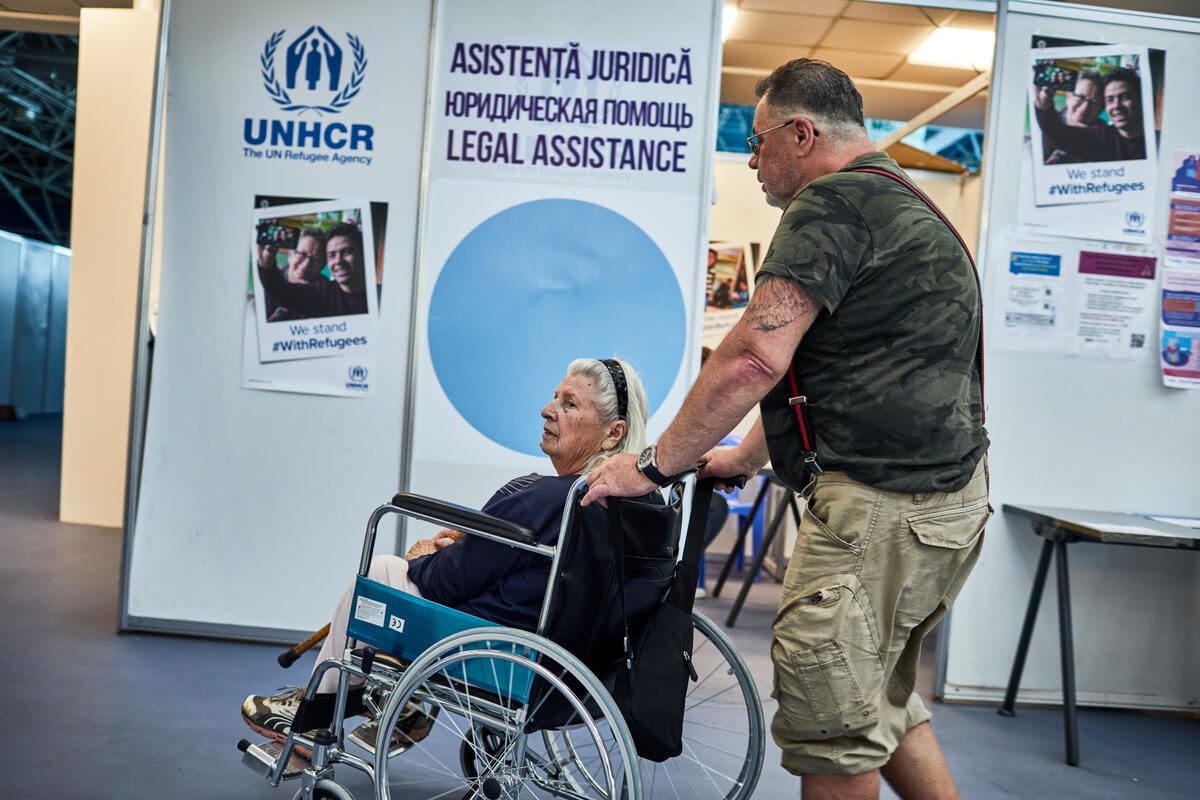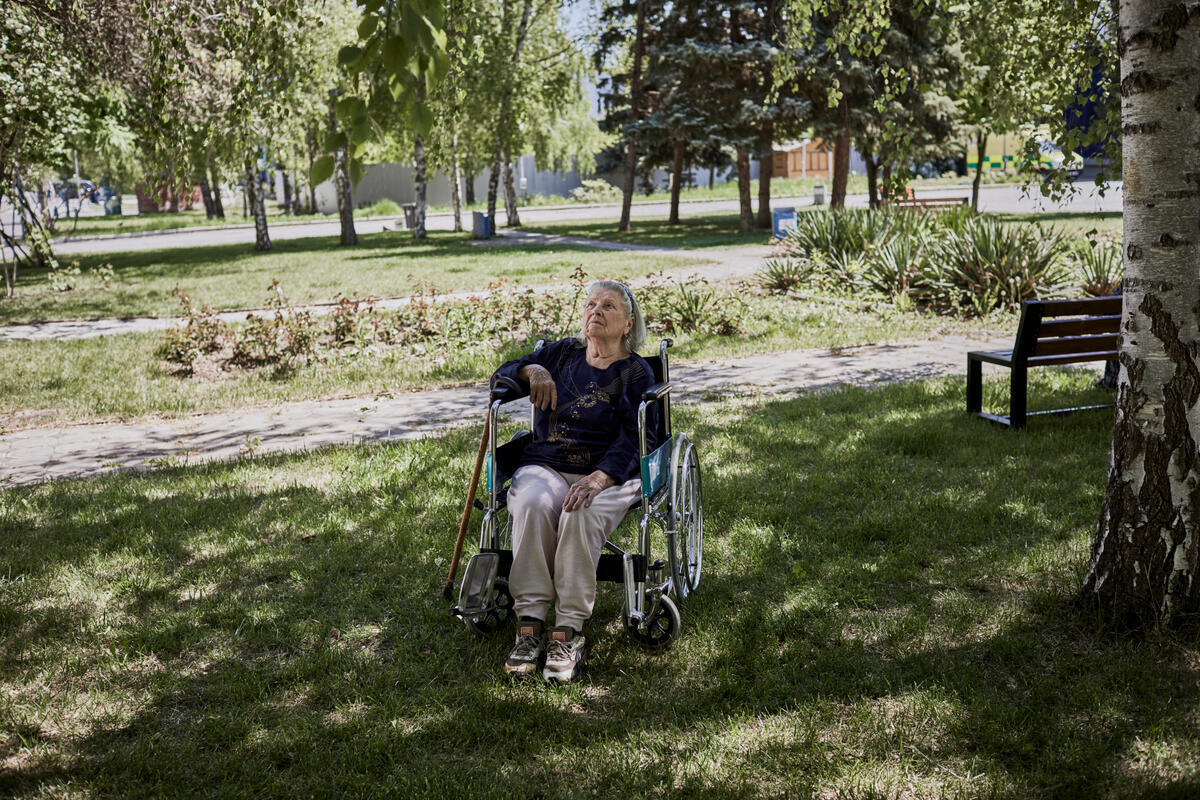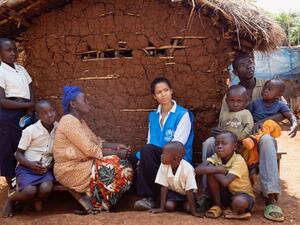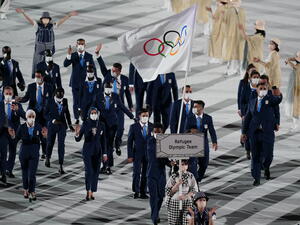War uproots Ukrainian widow from lifelong home in Mykolaiv
When Svetlana closes her eyes, she can still see the flowers that were bursting into bloom in the garden of her home in Ukraine’s Mykolaiv as she prepared to flee into an uncertain future.
“I really love plants and flowers,” she says, eyes glancing skyward. “I have lots of tulips. I also have a lot of lilies, as tall as a person.
“That was my life until the war started.”
As the invasion of Ukraine began, 83-year-old Svetlana’s life changed completely. Her home went from sanctuary to shelter.
“I lived all the time in Mykolaiv with my husband. We built a house,” she recalls. “A long marriage, a long lifetime: 62 years, this is how long my husband and I lived together. He died on December 20, 2020.
“My house is very nice – big, beautiful,” she continues. “During all of these years, it was always peaceful, and then war broke out. I’m alone in the house. It was awful. It was possible to hide in the basement but, due to my knee problem, I could get down there but not go up.”
With Svetlana largely reliant on her wheelchair for mobility, her worried son Andre traveled to Ukraine from his home in Germany. He stayed with her in Mykolaiv until conditions were safe for them to flee the besieged city.
Even then, Svetlana was hesitant to leave her lifelong home and beloved garden.
“My peonies had just bloomed,” she explains. “[But] when we decided to leave, my son said, ‘Mom, just think about winter, you will be alone, how will you manage by yourself? When there’s frost and snow, who’s going to come and visit you in this neighborhood?’.”
In order to reach their final destination of Berlin, they first had to travel the 150 kilometre from Mykolaiv through Odesa, and finally to the Palanca border crossing into the Republic of Moldova. There, they were met by UNHCR and its partners. Svetlana was surprised – and relieved – by the reception and hospitality.
“You know, I never expected to see something so well organized. People were very satisfied, we were greeted so well by these volunteers, they helped with our luggage, loaded it onto a bus, invited us into a tent to have a snack and wash our hands,” she remembers. “During such difficult times when so many people need help, the services are excellent.”
Since the war started on 24 February, Moldovan authorities have recorded more than 515,000 border crossings from Ukraine into the country. Currently, there are about 83,000 refugees from Ukraine staying in Moldova – this includes Svetlana.
After she was received at the border, Svetlana and her son were transported to Chisinau, the capital of Moldova, where they were offered shelter and assistance at MoldExpo, an accommodation center operated by the authorities, with the presence of UNHCR, partners and other UN agencies.
In the early days of the emergency, MoldExpo housed more than 1,200 refugees. Today, the location provides accommodation and hot meals to approximately 350 refugees, as well as counseling, a safe space and protection in the adjacent Blue Dot Hub established by UNHCR and UNICEF, together with authorities and partners.
As she sits in her wheelchair outside of MoldExpo enjoying some moments of bird song and sunshine, Svetlana muses on what she’s left behind.
“Of course, I would love to be in my homeland, but the situation doesn’t allow it, and neither does my health,” she says. “The most important thing is nobody is shooting at us. We can sleep peacefully.”


